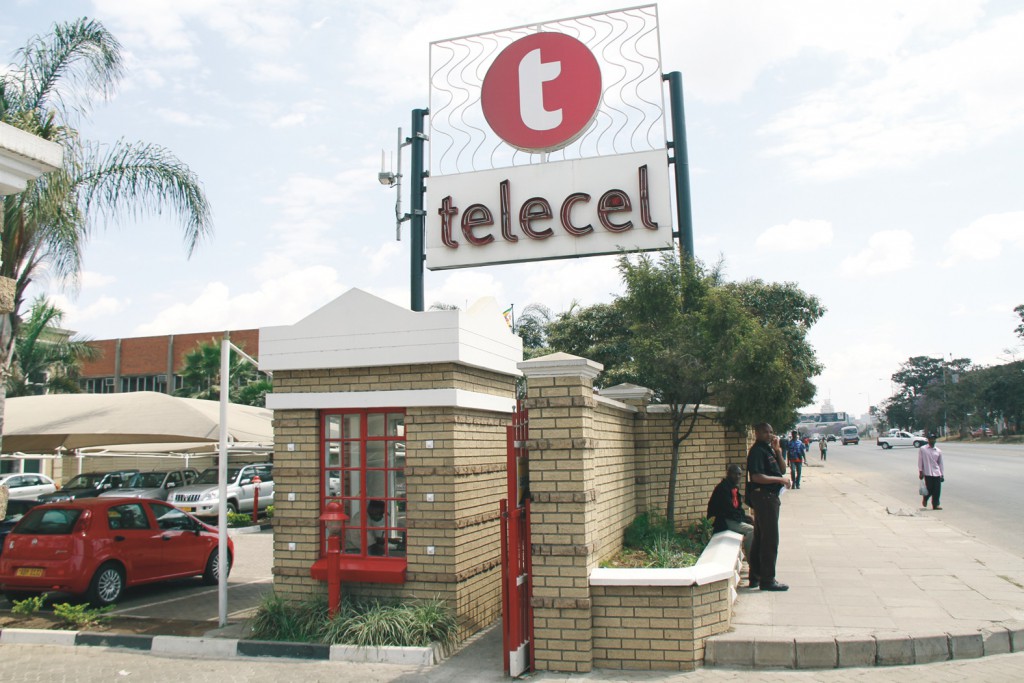GOVERNMENT, which has 60% shareholding at Telecel Zimbabwe, has made a decision not to sell part of its stake to investors interested in the telecommunications company, but instead buy off the minority shareholders, making the company wholly government owned, a cabinet minister has revealed.
A number of investors both foreign and local have been tabling offers to buy shares in state-owned mobile operators Telecel and NetOne as well as fixed-line telecoms company TelOne, which are all desperate for a fresh capital injection.
Information Communication Technology (ICT) minister Supa Mandiwanzira this week told the Zimbabwe Independent cabinet had resolved to buy out the minority shareholders. "Government currently has 60% shareholding at Telecel Zimbabwe and it bought this stake from VimpelCom (now called Veon). We have been approached by many people who want to buy the 60% stake but I am very clear that it is government's position that this 60% is not up for sale. In fact, we actually want to buy out all the minority shareholders as instructed cabinet," Mandiwanzira said.
"We were approached by different investors, including businessman James Makamba, whom we told that if they are serious with their intention to buy, they should provide proof of funding. We have not seen it yet and that has emboldened our position as government that we really must buy out because there is a lot of money required to revive the business and to capitalise it, so we need shareholders who are strong to capitalise the business."
Mandiwanzira said the decision by cabinet to buy out minority shareholders came after government noticed that the current shareholders are not sufficiently capacitated to capitalise the telecoms company, which is the country's third-largest mobile network operator.
"The minority shareholders can either negotiate with government to walk away with something or we decide to go for a rights issue, whereby everybody must now come to the party and pour in funds to the company so our advisors are looking at the various options," said Mandiwanzira, who emphasised that he was going to pursue to buy out as per cabinet directive.
There is a mystery as to who really owns the Telecel Zimbabwe minority shareholding which also involves an unresolved court case.
Last year, prominent lawyer and President Emmerson Mnangagwa's son-in-law George Mlotshwa, emerged a Telecel shareholder after he secured part of Makamba's 40% shareholding following reports that the controversial tycoon had sold his stake in Empowerment Corporation (EC) to a local consortium that included Mlotshwa and businessman George Manyere.
However, without revealing who really owns the 40% shareholding, Mlotshwa last month said there were no issues regarding Telecel Zimbabwe's shareholding. Instead, he said Telecel had held a board meeting in which Makamba was present and managed to map a way forward for the company.
"There was a board meeting yesterday. The meeting went on extremely well. There are no issues between myself and Makamba, and shareholders," Mlotshwa said last month.
Makamba, on the other hand, remains the Telecel board chairperson.
In March Mlotshwa, Makamba and Mutasa, as well as the ICT Ministry, were taken to court by a group of war veterans over a dispute on the disposal of Telecel shares.
The war veterans, under the rubric of Magamba eChimurenga Housing Trust, approached the High Court seeking an interdict to stop trade in shares reportedly held by an assortment of individuals and investment vehicles.
When government finalised the purchase of its 60% equity stake in Telecel last year, it made an immediate capital injection of US$5 million into the company.
Mandiwanzira however said Telecel needs more funding which will ensure that the company rolls out new technologies to meet subscriber needs with the mobile operator, having commenced last year the network upgrades necessary to close the gaps in its service provision.
"This is not an individual transaction, I am doing it on behalf of government. We believe that with the right shareholding it is a very viable business in the future but as you know the company has always been a poisoned chalice and it has had problems associated with its shareholders and we believe that as long as those shareholders continue to be associated with business, it will always be difficult to have the business take off," Mandiwanzira added.
- the independent
 Concern over Masvingo black market
Concern over Masvingo black market  Kenya declares three days of mourning for Mugabe
Kenya declares three days of mourning for Mugabe  UK's Boris Johnson quits over Brexit stretegy
UK's Boris Johnson quits over Brexit stretegy  SecZim licences VFEX
SecZim licences VFEX  Zimbabwe abandons debt relief initiative
Zimbabwe abandons debt relief initiative  European Investment Bank warms up to Zimbabwe
European Investment Bank warms up to Zimbabwe  Young Investment Professional (YIP) Graduate Programme 2019
Young Investment Professional (YIP) Graduate Programme 2019 











 Young Investment Professional (YIP) Graduate Programme 2019
Young Investment Professional (YIP) Graduate Programme 2019
Editor's Pick